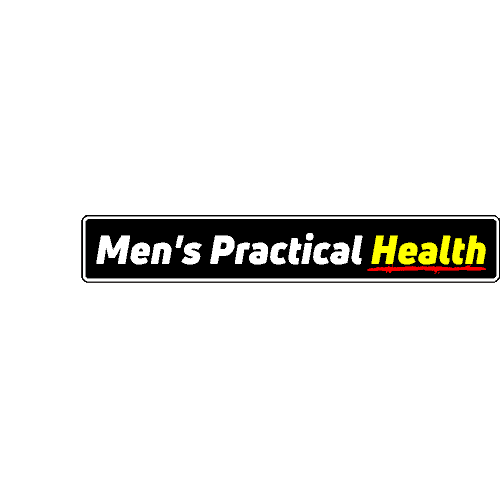Here we are going to look at 8 annoying reasons why you’re not gaining muscle mass. Many individuals strive to increase their muscle size. But, despite putting in all the effort, you still don’t seem to gain any extra muscle mass.
If this sounds like you then you will want to read on as I delve into common mistakes and overlooked aspects of muscle building.
Identifying and addressing these factors, you’ll be able to better understand what’s holding you back. Then, you can achieve the muscular physique you’re striving for.
The reason that you might not be gaining muscle mass may be down to one or more of these 8 reasons:
- You’re not eating enough food
- You’re training inconsistently
- You’re doing too much cardio
- You’re not training right
- You’re not getting enough sleep
- You’re not eating enough protein
- You’re not drinking enough water
- Drinking Alcohol
1. You’re Not Eating Enough Food
To build muscle mass, you must eat a surplus amount of calories. Now I am sure, you have seen people do what is called dirty bulking (or maybe you’ve tried it).
This is when a lot of a person’s diet includes a lot of junk food. Now, it is possible to build muscle by eating highly processed junk food, but I wouldn’t recommend doing so, especially if you are older.
The consequence of junk food will result in gaining too much excess fat and can lead to health problems.
Also, dirty bulking will mean you will have to eventually go through a strict eating plan to lose the excess fat. This is harder to do after eating a diet of tasty junk food.
The best way is to eat plenty of quality food that will optimise your gains without piling on too much fat.
The best types of foods to build lean muscle are:
- Lean proteins in the form of chicken, turkey, fish and eggs
- Complex carbohydrates, like sweet potatoes
- Healthy fats from sources like nut or peanut butter, avocados, and olive oil
- Green leafy vegetables and colourful fruits for micronutrients
- Dairy products, such as Greek yoghurt
- Protein-rich snacks, like almonds and cottage cheese
- Hydrating foods, like watermelon and cucumbers, to maintain water balance
Your muscles need protein and healthy fats to repair muscle tissue. While carbohydrates replenish stored glycogen levels that your body uses for energy.
So you can train as hard as you want in the gym, but you will only see adequate muscle growth if you eat enough food.
2. You’re Training Inconsistently
Consistency is vital if you want to develop muscle mass. You’ll only see the desired results if you’re training on a regular basis.
Follow and stick to a structured workout plan. Training consistently with an average workout plan will deliver better results than training inconsistently with the best workout plan.
As you become more experienced with resistance training, the research shows that you will need more volume than a newcomer.
If you train two days a week, you must increase the number of sessions.
When increasing the volume, you should adjust the training intensity to avoid over-training.
3. You’re Doing Too Much Cardio

Cardiovascular exercise is not essential for muscle hypertrophy.
If, for example, you enjoy going out for a run, I would never tell you to stop running. But be aware that too much can hamper muscle growth.
Particularly if you’re not consuming enough calories to cover what you burn during your cardio workouts.
When you perform a lot of cardio, your body adjusts to perform the activity. This means the body may cut some muscle mass to run more efficiently.
Also, too much cardio can elevate cortisol levels. A stress hormone related to breaking down muscle tissue.
The best forms of cardio for muscle building will be activities that are not intense or need a high volume of time.
One form of cardiovascular exercise that is great to do is walking. [Link to blog post]
So, limit your cardio sessions and focus more on strength training.
4. You’re Not Training Right To Gain Muscle Mass
You should change how you train if you’re not seeing any gains. This could include:
- Changing Incorrect technique
- Not adequate training volume or intensity
- Order of exercise selection
Incorrect technique
Make sure you’re performing the exercises correctly and with the proper form.
Many people aim to lift as much as possible and lose focus of their technique. In other words, they are just moving weight. [Link to blog post]
Also, to avoid plateaus, you should change your workout routine every few weeks. This will give your muscles a new stimulus.
I do want to be clear here. I don’t mean completely changing your exercise routine …
- By making a few changes, such as:
- Exercise order
- Rest periods between sets
- Strength training period
- Introduce 1-2 new exercises
These can offer new challenges and a psychological factor to keep sessions fresh.
Not adequate training volume or intensity
The volume and intensity of your training are crucial factors in muscle growth.
You may struggle to progress if your training volume (number of sets and reps) is insufficient.
Depending on the individual, it is recommended to perform between 12-20 sets per muscle each week.
On top of the volume needed …
To increase muscle mass, you have to train in a way that your muscles will be challenged.
Your muscles grow as a response to stress. Lifting weights creates microscopic tears in the muscle fibres. Your body repairs these tears, causing the muscles to grow back stronger and bigger.
If you’re not lifting heavy enough appropriately, your muscles won’t grow.
Increase the weight gradually and aim for 8-12 reps per set. By the twelfth rep, you should only have around two more reps left in you.
When the time comes that you can do more than twelve, push to fifteen. This is an excellent time to add slightly more weight in the next session.
This is why keeping a record of your training sessions is crucial. You must write down training to know if you are progressing.
Thus, inadequate training volume or intensity can lead to stalled muscle growth. It’s crucial to challenge your muscles regularly. So, increase either the weight, number of repetitions or sets you’re doing.
You can also decrease the rest period between sets.
Order of exercise selection
The order of your exercises can increase or decrease the chances of gaining lean muscle mass.
A simple example is if you always train your back muscles in the middle or towards the end of a full-body workout …
This means the muscle group is never trained when the muscles are fresh.
While you will still see some growth, you won’t achieve the optimum amount if you were to work a muscle group before they’ve been fatigued.
So, make sure to order the exercises appropriately. Placing various muscles towards the beginning of your resistance training.
5. You’re Not Getting Enough Sleep To Build Muscle Mass
Sleep is crucial to physical performance, muscle growth and recovery. Your body repairs muscle tissue and grows while you sleep – not in the gym.
Chronic sleep deprivation increases the body’s catabolic state. This means your body is breaking down muscle. It also initiates metabolic dysfunction, harming the body’s capacity to process waste and convert food into energy.
Ensure you get at least seven hours of sleep, preferably near nine.
Everyone is different. So paying attention to how you feel after a night’s sleep is essential to know if you are getting enough.
6. You’re Not Eating Sufficient Amounts of Protein
The process of protein synthesis is needed to repair muscle tissue. If you’re not consuming enough protein, your body won’t be able to repair and build muscle optimally.
If you eat a surplus of calories, then more than likely, you will hit your protein goals. But, you should consume at least 1.2 -1.7g per kilogram of your body weight ( 0.5 to 0.8 grams per pound).
You can exceed this slightly if you want to make sure, but try not to drop below this recommendation.
7. You’re Not Drinking Enough Water

Water plays a role in muscle-building as it helps transport nutrients to your muscle cells.
Additionally, muscles are made up of approximately 70% water. If you’re dehydrated, your muscle response will be less robust during your workout, which will hamper your performance during workouts.
Also, your muscle volume will decrease.
In fact, studies have shown that a lack of water in the cells causes increased protein breakdown. This is detrimental to muscle building as protein is responsible for repairing and growing muscles.
How much water should you drink?
The amount of water you need can vary depending on your weight, size and workout intensity. Also, the training environment, hot or cold, can influence how much water you need.
Since there are many variables, rather than tell you how much you need to drink …
I advise you to listen to your body’s needs to stay well-hydrated. You can tell if your water intake needs adjusting by the colour of your urine.
Too yellow means you must drink more; too clear means you have drunk too much. Your urine should be mainly clear with a tint of yellow.
However, if you do want actual measurements of how much to drink, then a general guideline is to consume around 2-3 litres (about 13 cups) of water daily for men.
8. Drinking Alcohol

Drinking alcohol interferes with muscle growth. It inhibits muscle protein synthesis, increases cortisol, and lowers testosterone levels.
These three factors are essential if you want to increase muscle mass. So, it’s best to limit your alcohol consumption or avoid it altogether.
Summary
Building muscle mass requires discipline, consistency, and patience.
If you’re not seeing any gains, don’t get disheartened. There can be various reasons behind it, which can be rectified.
Ensure you’re eating enough calories (preferably through healthy food sources). Train consistently, get plenty of sleep, and focus on hypertrophy training.
Also, ensure you’re consuming enough protein, training with the appropriate volume and intensity, and drinking a sufficient amount of water.
By following these tips, you’ll be on your way to achieving the muscle gains you desire.


